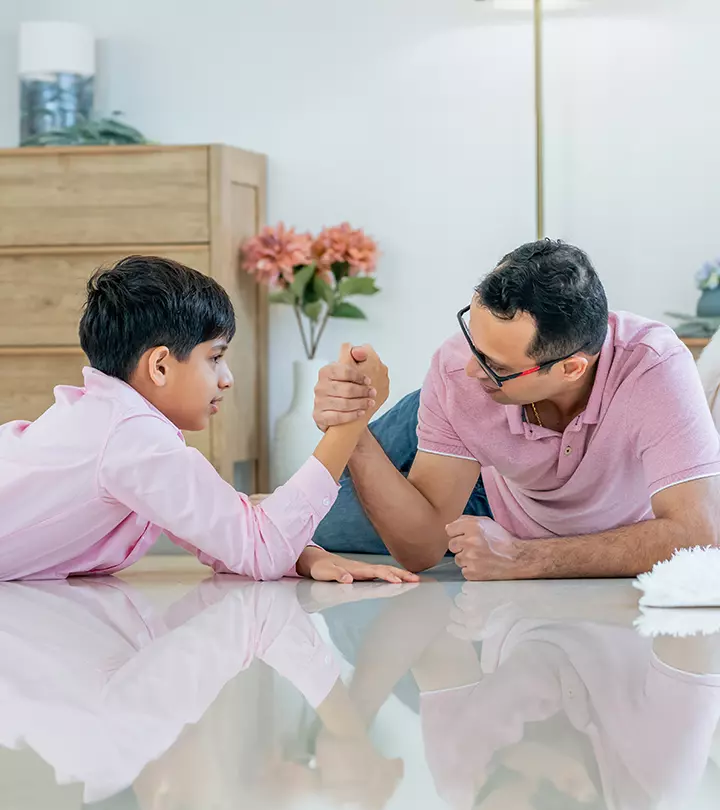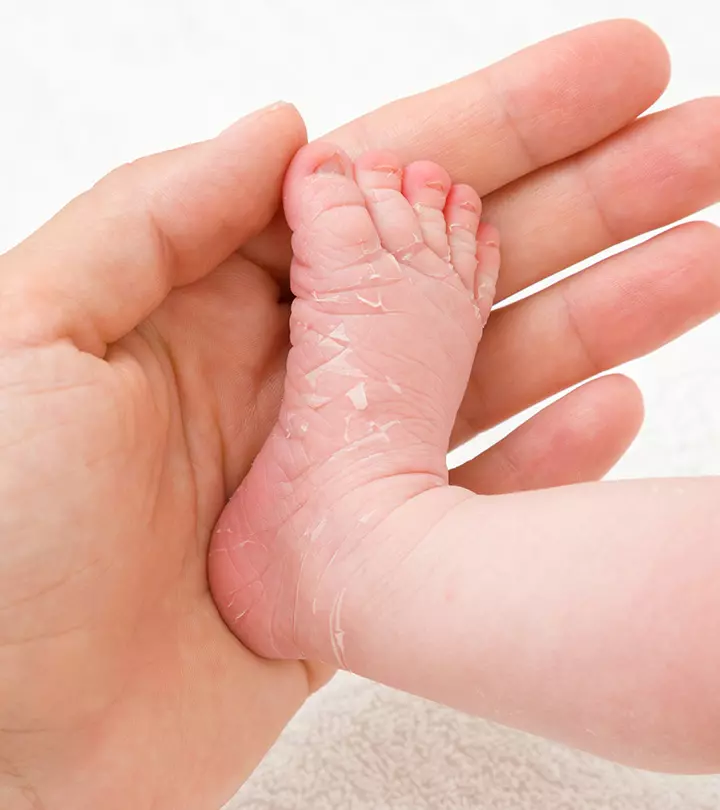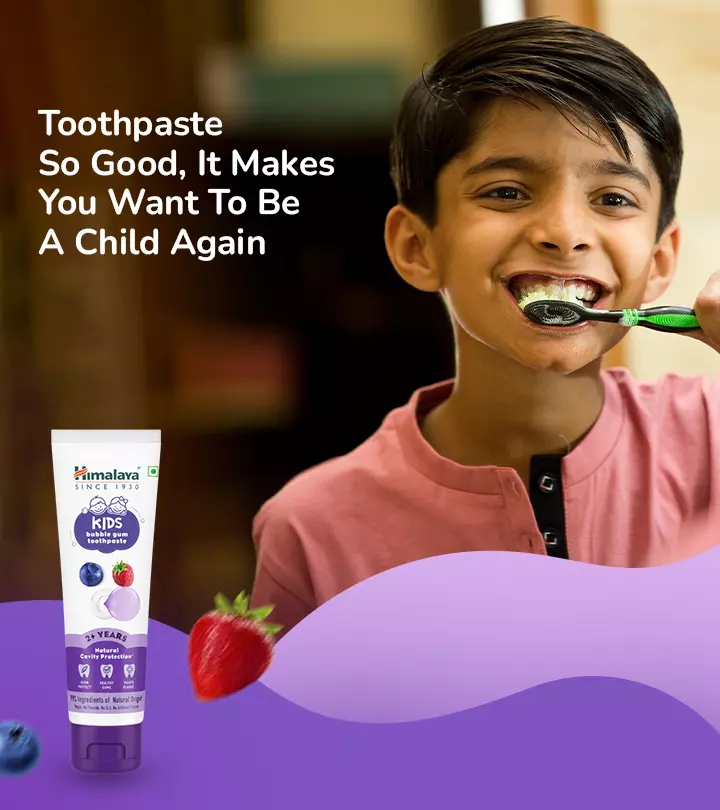

Vitamin D deficiency is a common concern for kids of all ages and can cause various health problems. This deficiency occurs when the body doesn’t get enough of this important vitamin. Hence, it’s important to understand what brings about this deficiency, recognize the warning signs, and take preventive measures to ensure that it doesn’t happen in the first place.
Importance of Vitamin D
Vitamin D plays a vital role in many important bodily functions, such as maintaining bone strength and enhancing immunity. It helps in the absorption of calcium from food and also helps maintain the right balance of calcium and phosphorus in the bones. Furthermore, maintaining optimal vitamin D levels in children may protect against certain autoimmune conditions, infections, and even type 2 diabetes (1).
What Causes Vitamin D Deficiency in Children?
In children, insufficient vitamin D levels can be attributed to various factors, including (2):
- Inadequate Sun Exposure: Primarily, vitamin D is synthesized from sunlight. If children have limited outdoor exposure or reside in regions with scarce sunlight, it can lead to a deficit.
- Not Eating Enough Vitamin D Foods: Insufficient consumption of vitamin D-rich foods like fatty fish, egg yolks, and fortified milk can result in deficiency.
- Being Obese: When children have too much body fat, it can trap vitamin D since it’s fat-soluble. This makes it less available for the body to use.
- Medical Conditions: Celiac disease, Crohn’s disease, Cystic fibrosis, and liver and kidney diseases are a few medical conditions that can cause vitamin D deficiency by affecting how the body absorbs or uses vitamin D.
- Medications: Medications that can cause vitamin D deficiency include laxatives, steroids, Rifampin, and Orlistat. These medications can interfere with how the body handles vitamin D.
- Weight-loss surgeries: Procedures that reduce the size of the stomach or intestines, often used for weight loss, make it harder for the body to absorb vitamin D.
Spotting the Early Signs of Vitamin D Deficiency in Children
Recognizing the early signs and symptoms of vitamin D deficiency is important, given its prevalence. However, these signs are often subtle and may resemble symptoms of other health conditions. Find below a list of vitamin D deficiency symptoms that may suggest a possible deficiency in children (3) (4) :
- Bone and Muscle Pain: Children with a vitamin D deficiency may endure bone and muscle discomfort.
- Growth Delays: Slower growth and development in children can be a sign of vitamin D deficiency.
- Fatigue: Despite adequate sleep, your child may exhibit persistent tiredness.
- Frequent Infections: A weakened immune system resulting from vitamin D deficiency can make children susceptible to frequent illnesses.
- Mood Changes: Irritability and mood swings may become more pronounced in children with vitamin D deficiency.
- Difficulty Walking: Inadequate vitamin D levels can compromise muscle strength and hinder a child’s mobility.
- Dental Problems: Vitamin D deficiency can lead to dental issues like delayed tooth development and cavities.
- Respiratory Issues: Wheezing and asthma symptoms may worsen in children with low vitamin D levels.
- Skin Manifestations: Low vitamin D can manifest as skin problems, including eczema.
Complications of Vitamin D Deficiency
If you suspect your child has a vitamin D deficiency, it is essential to consult a doctor. Untreated vitamin D deficiency can lead to medical issues, including rickets, osteomalacia, and low levels of calcium and phosphate in the blood (2). Thus, timely medical intervention is necessary to prevent adverse outcomes.
Screening and Diagnosis
Symptoms of vitamin D deficiency in children may include bone pain, muscle weakness, delayed growth, and susceptibility to infections. That is why it is important to monitor their Vitamin levels. Check out Nutricheck on www.tayyarijeetki.in – a wonderful way to keep score of your child’s nutrition. You can use the information you get to fortify your child’s diet. Alternatively, your healthcare provider may also schedule a blood test if they suspect the condition to be serious (5). Based on these results, they may recommend Vitamin D supplementation or dietary modifications. It is important to work closely with a healthcare provider or pediatrician when assessing and managing vitamin D deficiency in children to ensure they receive appropriate care and guidance.
Preventing Vitamin D Deficiency in Children
Preventing Vitamin D deficiency in children involves several strategies:
- Sun Exposure: Encourage outdoor activities to ensure sufficient exposure to sunlight.
- Dietary Sources: Give your children a vitamin D-rich diet, which includes fatty fish, fortified dairy, shiitake mushrooms, and eggs (6).
- Supplementation: If natural sources and dietary changes aren’t enough, healthcare professionals may recommend vitamin D supplements.
Vitamin D deficiency in India
Vitamin D deficiency is a widespread concern in India, affecting people of all ages due to dietary limitations and limited sun exposure. Studies indicate that a substantial portion of the population, up to 70% to 100%, lacks sufficient vitamin D (7). Notably, this deficiency extends to children living in both urban and rural areas, regardless of their socioeconomic status. Recent research reveals that approximately 13.7% of preschoolers, 18.2% of school-age children, and 23.9% of teenagers in India have inadequate levels of vitamin D (8).
As parents, being vigilant about spotting the early signs of vitamin D deficiency in our children and taking steps to prevent it can make a world of difference in their health and happiness. This means making sure your child eats a balanced diet, gets enough sunshine, and keeps up with regular doctor visits to maintain those essential vitamin D levels. So, let’s remember, a little knowledge and looking after our kids can go a long way in keeping them healthy and happy.
References
- Vitamin D Supplementation in Infants, Children, and Adolescents.
https://www.aafp.org/pubs/afp/issues/2010/0315/p745.html - Vitamin D Deficiency.
https://my.clevelandclinic.org/health/diseases/15050-vitamin-d-vitamin-d-deficiency - How to Spot a Vitamin D Deficiency.
https://www.unitypoint.org/news-and-articles/how-to-spot-a-vitamin-d-deficiency - Evaluation of the Signs and Symptoms of Children for Whom a Vitamin D Test Is Requested: In Which Cases Do Pediatricians Want a Vitamin D Test?
https://www.turkarchpediatr.org/Content/files/sayilar/126/TAP_March_2023-85-92.pdf - Vitamin D Deficiency.
https://www.nationwidechildrens.org/conditions/vitamin-d-deficiency - Vitamin D for Babies, Children & Adolescents.
https://www.healthychildren.org/English/healthy-living/nutrition/Pages/vitamin-d-on-the-double.aspx - Vitamin D deficiency in India: prevalence, causalities and interventions.
https://pubmed.ncbi.nlm.nih.gov/24566435/ - Prevalence and Correlates of Vitamin D Deficiency Among Children and Adolescents From a Nationally Representative Survey in India.
https://www.indianpediatrics.net/mar2023/202.pdf
Community Experiences
Join the conversation and become a part of our nurturing community! Share your stories, experiences, and insights to connect with fellow parents.
Read full bio of Preetjyot Kaur



















